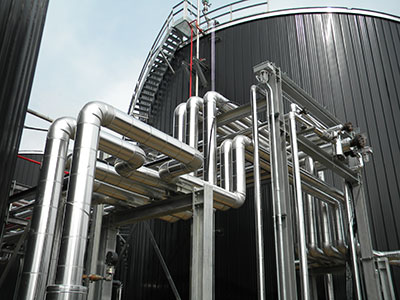When choosing a cellular glass insulation supplier, many clients feel confused by technical demands, pricing concerns, and differences between manufacturers.
The best cellular glass insulation suppliers offer ASTM-compliant products, custom solutions, and proven experience in commercial and industrial projects. Choosing a reliable partner ensures long-term performance and support.

Choosing the right supplier goes beyond just looking at price lists. I have seen how project performance changes when companies work with trusted partners. In this post, I will share the key things I look for, based on years of industry experience. Let’s look at these essentials and see how cellular glass insulation suppliers set themselves apart.
Foam Glass Insulation Specifications: Why Do They Matter?
The technical jargon on foam glass insulation specs can confuse even seasoned professionals. Mistakes here lead to performance issues and safety concerns.
Foam glass insulation specifications decide what materials are suitable for a project, including size, density, compressive strength, and compliance with standards like ASTM C552. Always check specs before you buy.

I have worked with projects from high-rise buildings to large chemical tanks. Every job needs its own solution, but specifications are the foundation for success. When suppliers, like my team at HUAYUE, provide different thicknesses, shapes, and densities on request, I know we help customers meet their exact needs. This process supports both thermal protection and long-term reliability.
Every project has a unique set of challenges. In my experience, technical specs make all the difference. For example, at HUAYUE, we customize not only foam glass boards but also pipe insulation, elbows, and special shapes. Engineers like Hans Müller in Germany often need bespoke items for tank bases, pipe joints, or valve boxes. Matching ASTM C552 standards means every piece is tested for fire resistance, thermal efficiency, and compressive strength. By looking at these details early and working directly with the supplier, I have helped customers avoid costly retrofits and long downtime. Reliable suppliers will share actual project case studies, proving their product quality and attention to detail.
Cellular Glass Thermal Conductivity: What Should You Expect?
Many talk about insulation values, but not everyone understands what drives true performance in the field.
Cellular glass insulation delivers low thermal conductivity, usually 0.038–0.045 W/(m·K) at room temperature. This means steady performance in hot and cold conditions, making it ideal for demanding environments.

I often see that energy-saving goals and safety compliance start with choosing insulation that holds its R-value over decades. Cellular glass does not absorb water, so its thermal performance does not drop with age. That makes it a favorite for large tanks and cold pipelines. In my own projects, I check supplier data sheets for thermal conductivity at different temperatures. Only some brands publish curves showing performance from -196°C up to 400°C, but this transparency is crucial. Reliable insulation means lower energy bills, better equipment protection, and peace of mind. When sourcing from China, I tell international customers to check both independent test reports and real-world references.
With the right data, you avoid surprises. In my experience, even small gaps in insulation or unexpected water ingress can cut energy efficiency sharply. Because cellular glass does not absorb water, the insulation stays effective, even in harsh, humid environments. I always look for suppliers who provide detailed performance charts and have case studies in large chemical or cryogenic projects. These are signs they know what matters in thermal design and long-term operation. Good communication with the supplier helps clients like Hans Müller choose not just the right product, but the perfect specification for challenging tank or pipeline insulation.
Conclusion
Finding the right cellular glass insulation supplier means checking product specs, long-term thermal performance, and reliable service for each unique project need.

